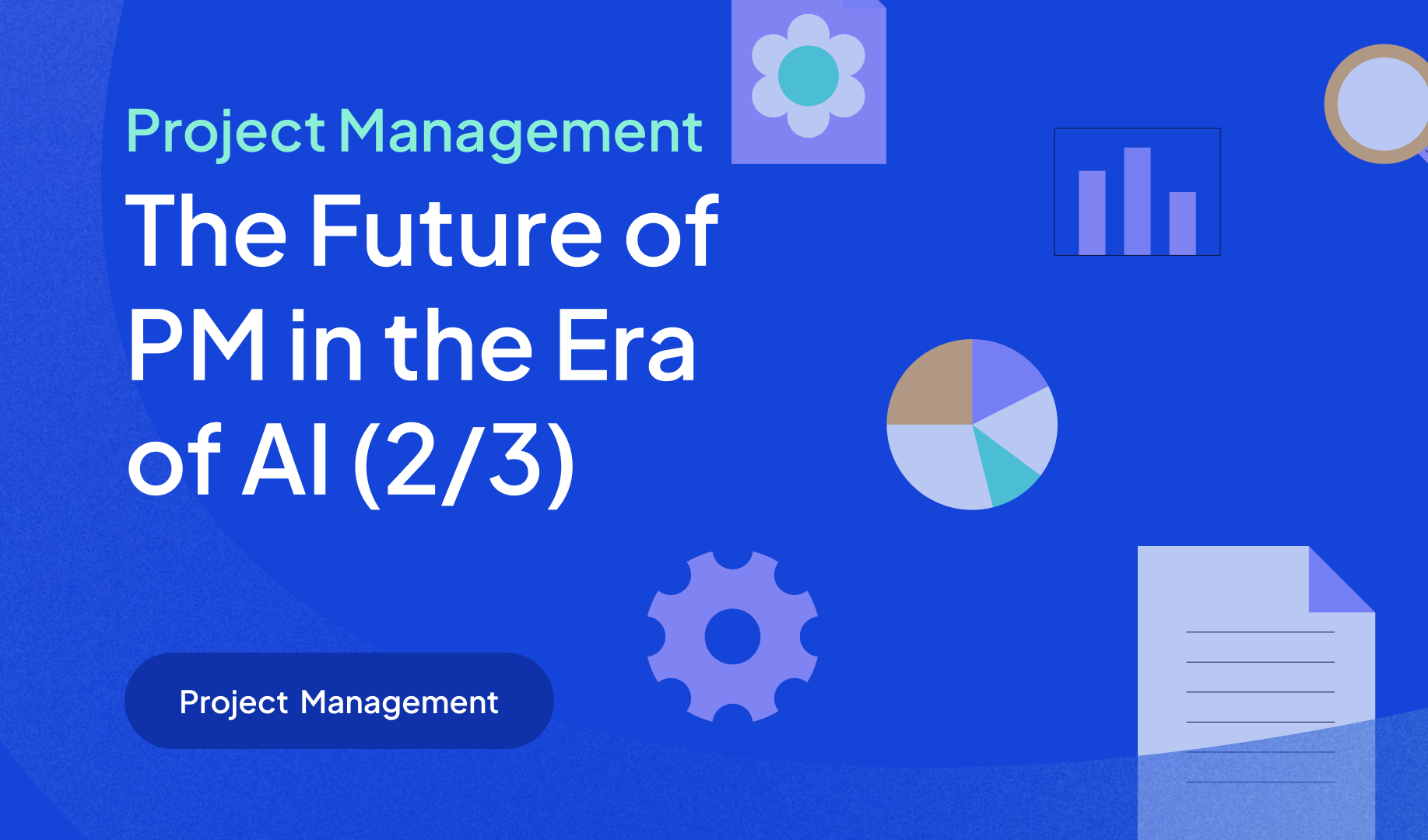The Future of PM in the Era of AI (2/3)

Challenges of Implementing Artificial Intelligence in Project Management
We’ve talked about the many potential benefits of applying Artificial Intelligence (AI) in Project Management in the first part of this blog series. (Check it here if you missed it).
Sadly, however, it’s not all that simple. On the contrary, implementing the use of AI to manage IT projects can be extremely challenging.
1. Resistance to change
Resistance to technology-driven changes is not unusual. We’ve seen it before throughout history. Humans, as a species, are programmed to resist change. Even the most curious or open-minded individuals sometimes prefer staying in their comfort zones rather than taking the leap into the unknown. We carry it in our nature.
For most, AI is alien and difficult to understand. And when we don't understand how something works, we tend to distrust it. Resistance against AI-driven technology is based on four arguments: lack of transparency or understanding, unwillingness to lose control of our work, violation of privacy and security, and discomfort with disrupting the ways we are used to work.
So, how to overcome that resistance in your company? First, don’t improvise or try to do it all at once. Create a plan. A detailed one, with specific and achievable goals. Second, educate and enlighten your teammates. Answer their questions and help them with their doubts. Investigate how AI could add value specifically to your organization. Focus on the positive things. Third, make sure you are in compliance with data privacy and security regulations. Be careful with not exposing clients' or your own company's private data. Finally, don’t let frustration take over you. It will not be an easy task, and it will take time. So be ready to work hard for it.
2. Integration to existing processes
There are also technical challenges in adopting Artificial Intelligence within an organization. Existing methodologies will probably have to be adapted and data may have to be migrated in a way that is compatible with the new systems. Team members will have to be re-trained and re-educated about how the intelligent tools work, how to interact with them, and how to identify if they are malfunctioning. Also, new technologies and infrastructure may have to be acquired or optimized in order to store the data.
There isn’t a unique recipe. It will depend on each project's nature and goals. But, if you’re thinking of adopting AI, it is crucial to take into consideration all the technical requirements before starting the transition.
3. Costs
As everything in life, Artificial Intelligence comes with a cost. And the more you are willing to pay, the more you'll probably gain.
With the right approach, AI benefits can be transformative, but we can’t ignore the financial costs involved in it. Software licenses, storing data and tool maintenance are not free. Depending on what you are looking for, you may have to acquire additional tools. Intelligent risk estimations, for example, are very complex and most management applications don't have them as a built-in functionality. Instead, you’ll have to bring in third-party tools which means extra costs.
Consulting services are another typical cost. AI has a world of possibilities and everything is always evolving so fast. Let’s face it, it can be scary and overwhelming. That is why many companies choose to hire experts to guide them through this process, and that may be expensive.
As with any investment, there are risks involved. The bright side is that, although the costs of implementing AI may be significant, as long as they are managed correctly, they will probably bring huge and long-term benefits to your projects.
Now that we’ve seen the benefits and the challenges, is Artificial Intelligence an ally or a threat for Project Managers? Stay tuned for the final part of this blog series where we’ll talk about the future role of Project Managers in the era of AI.